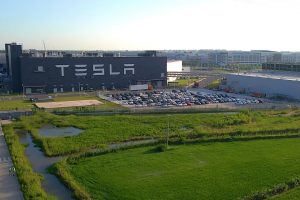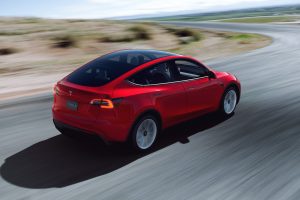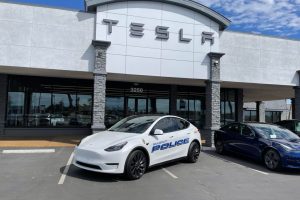Tesla (NASDAQ: TSLA) has a new Street-high price target from Oppenheimer’s Colin Rusch, who marked the company’s “extraordinary advantage” in self-driving cars, cost reductions in manufacturing, and its valuation as a high-growth stock as reasons for the increase.
Rusch boosted his price target from $486 to $1,036 on Wednesday. The revised target has overtaken the previous Street-high price target of $950 from Wedbush analyst Dan Ives who revised his PT late last week.
Following Tesla for several years, Rusch is aware of the developments that the automaker has made in manufacturing and in autonomy over the past several years. “We believe investors are grappling with where shares go from here…and believe bulls are betting on Tesla leading commercialization of autonomous vehicles technology,” Rusch wrote to investors in a note.
Autonomy has been a concern of Tesla’s for several months, offering its Full Self-Driving Beta to a small group of owners in October. Since then, that group has been sharing the developments and improvements that Tesla has made in its self-driving software through videos and other content sources. The improvements are notable, and Tesla’s self-driving suite is becoming more accurate and robust nearly every day. CEO Elon Musk expects a Level 5 autonomous vehicle to be released by Tesla by year-end, which would drive itself completely without any human intervention.
Tesla has several billion miles traveled on Autopilot throughout its fleet, giving the automaker an undeniable advantage over its competitors in experience. Google and Waymo are operating with about 50 million miles of experience, according to Cathie Wood of ARK Invest. This advantage “extraordinary” to Rusch, who said that thanks to the company’s over 1 million active vehicles, “shadow mode data collection can reach that threshold in ~six months, years faster than competitors.”
On top of Tesla’s surge toward autonomous driving, its production processes are more refined and efficient. With two additional production facilities preparing to open later this year, Rusch sees Tesla’s production volume to be significantly larger than expected because of manufacturing efficiencies and techniques that the automaker is using.
“Given production expected to start in Berlin and Austin this year, we are watching timelines and Capex numbers closely given potential complications from COVID-19 slow down and unique process equipment, notably for larger molds and battery materials,” he said. However, Rusch recognizes Tesla could encounter challenges initially, especially as new equipment is shipped and installed during a pandemic. “We expect Tesla to ramp this equipment but would not be surprised by delays due to technological or logistical complexities.”
At the time of writing, TSLA shares were trading at $840.78.
Original Publication by Joey Klender at Teslarati.





